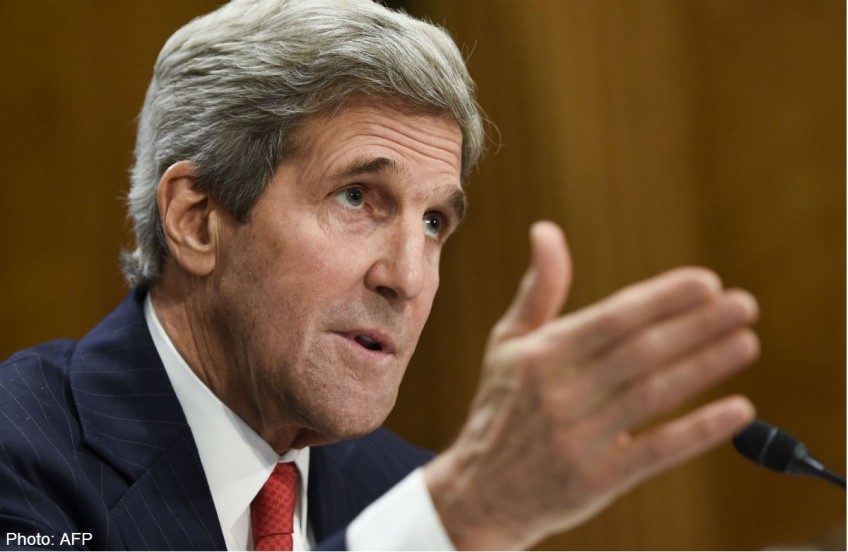US threatens sanctions against South Sudan rebel leader

LUANDA - US Secretary of State John Kerry threatened sanctions and other "consequences" for South Sudan's rebel leader Riek Machar on Monday if he refuses to commit to peace talks aimed at ending more than four months of fighting that has killed thousands.
Kerry flew to South Sudan on Friday, securing a commitment from President Salva Kiir to fly to Ethiopia for face-to-face talks with rival Machar. But Kerry failed to win a similar commitment from Machar when he later spoke with him by phone.
"He has a fundamental decision to make. If he decides not to (go) and procrastinates, then we have a number of different options that are available to us," said Kerry, speaking to reporters in Angola's capital Luanda, his last stop on a nearly week-long trip to Africa.
"Let me make it clear, if there is a total refusal by one party or the other to engage ... not only might sanctions be engaged, but there are other serious implications and possible consequences," he added.
Kerry, who said that UN Secretary-General Ban Ki-moon would go to South Sudan's capital Juba on Tuesday, noted that these consequences also included "accountability" for atrocities committed in the conflict. "There are any number of possibilities," Kerry said.
The South Sudanese army battled Machar's rebels in and around the northern oil town of Bentiu on Monday, dampening hopes over the renewed peace efforts.
South Sudan became the world's newest state when it declared independence from Sudan in 2011. But the international goodwill that accompanied the new nation's birth has been replaced by dismay since fighting erupted in mid-December between troops backing Kiir and soldiers loyal to Machar, his sacked deputy.
More than 1 million people have fled their homes and there have been allegations of abuses on both sides.
Machar, in an interview on Saturday with the Sudan Tribune, was quoted as saying he thought a face-to-face meeting with Kiir could be "counter-productive". But Kerry, who said he had read the interview, noted that Machar had not ruled out a meeting.
Kerry appeared to hold out hope that it might still happen. "He expressed some doubts but he didn't say he wouldn't go,"Kerry said in Luanda, noting that Machar's wife was in Ethiopia, where the face-to-face talks were meant to take place.
RISK OF GENOCIDE
US President Barack Obama last month authorised possible targeted sanctions against those judged to be committing human rights abuses in South Sudan or undermining democracy and obstructing the peace process.
But threats of sanctions from Washington and elsewhere have appeared to do little so far to sway Machar, who also rejected Kerry's proposal of forming a transitional government before an election.
"I asked him (Kerry), what would be the purpose of a transitional government? It would not be workable without a programme to implement before elections come," Machar was quoted as saying. "We need to have a peace agreement first with a new constitution. Putting (a) transitional government first is not realistic."
The conflict in South Sudan, which broke out after a long political rivalry between the president and Machar, quickly spread to areas including the oil-producing north. The violence has often followed ethnic lines, reflecting traditional enmity between Kiir's Dinka people and Machar's Nuer.
Kerry has warned that the increasingly ethnic violence could descend into genocide and, while in South Sudan, also cited the risks of famine and condemned the reported recruitment of child soldiers and sexual violence.